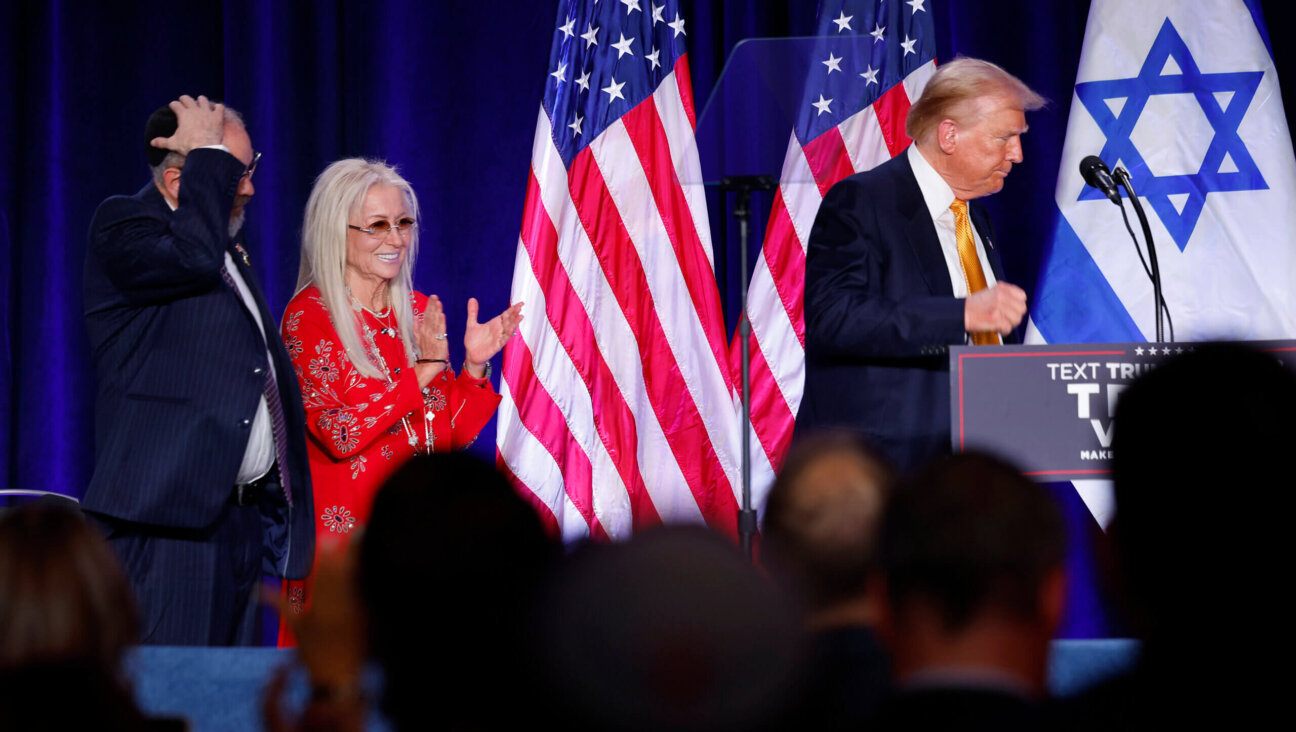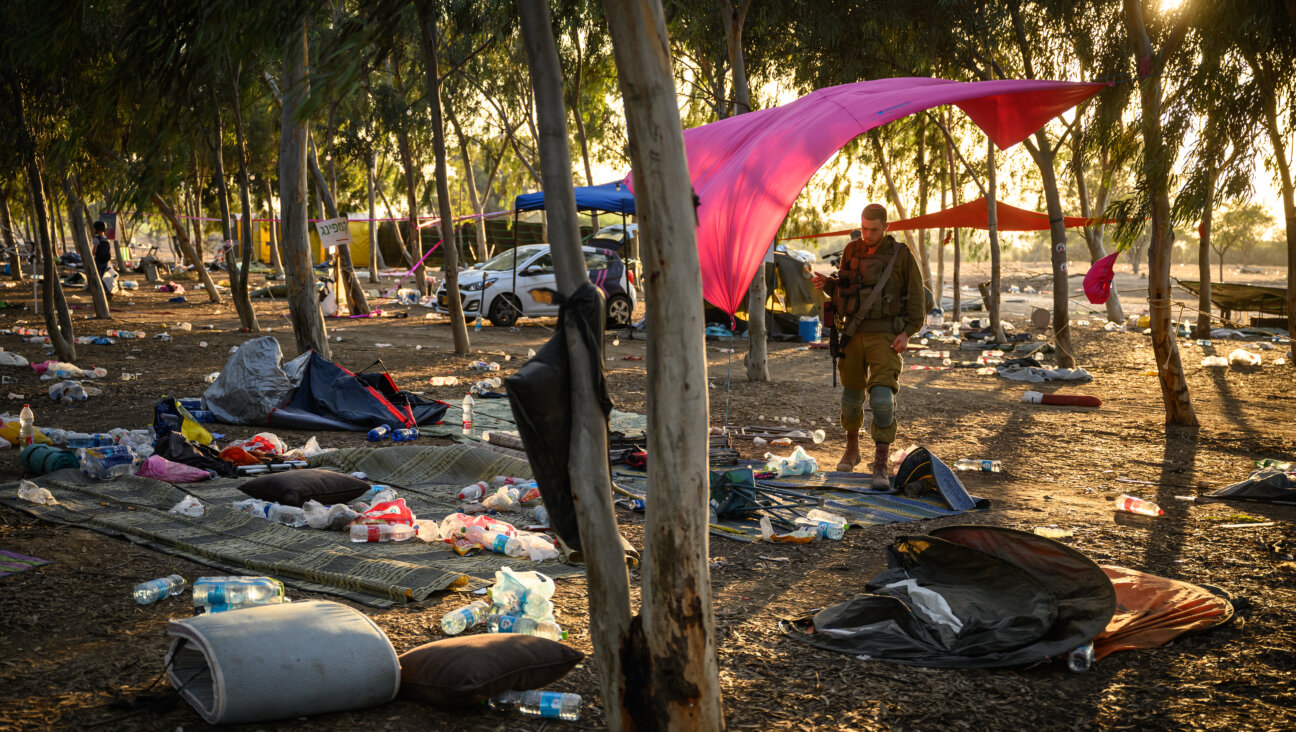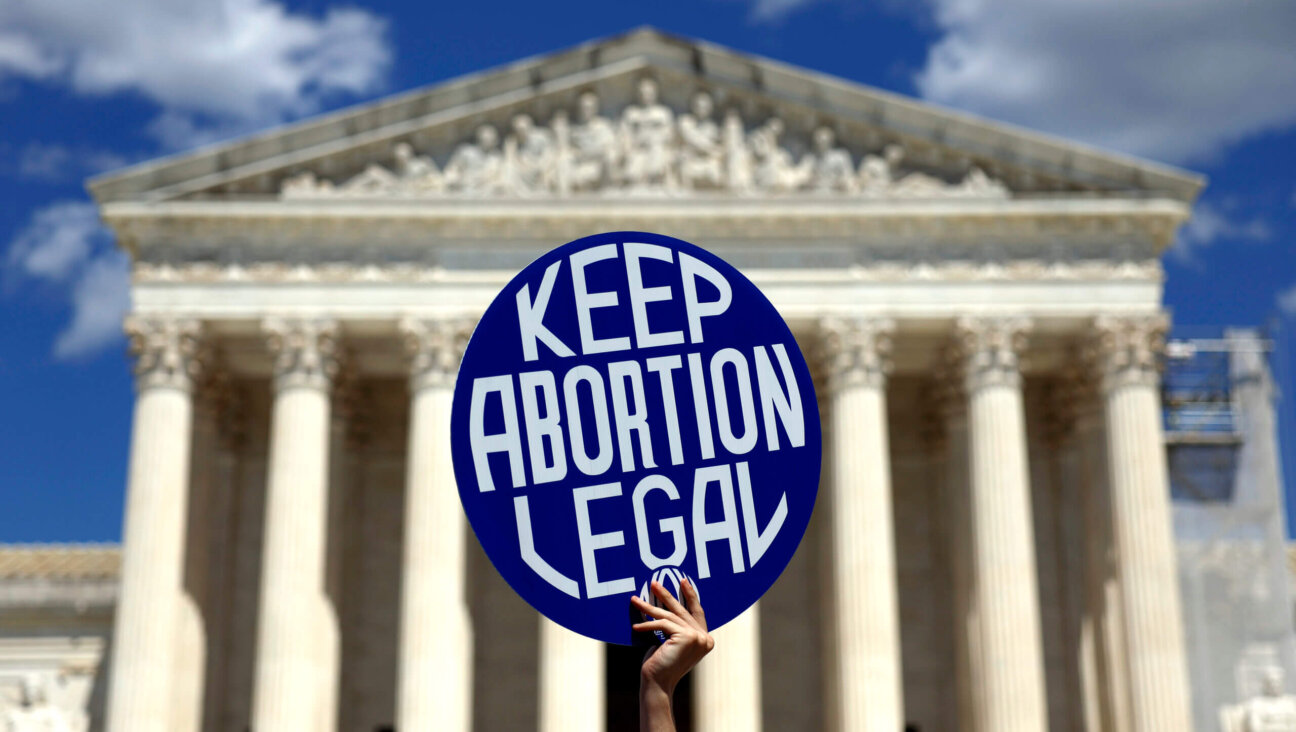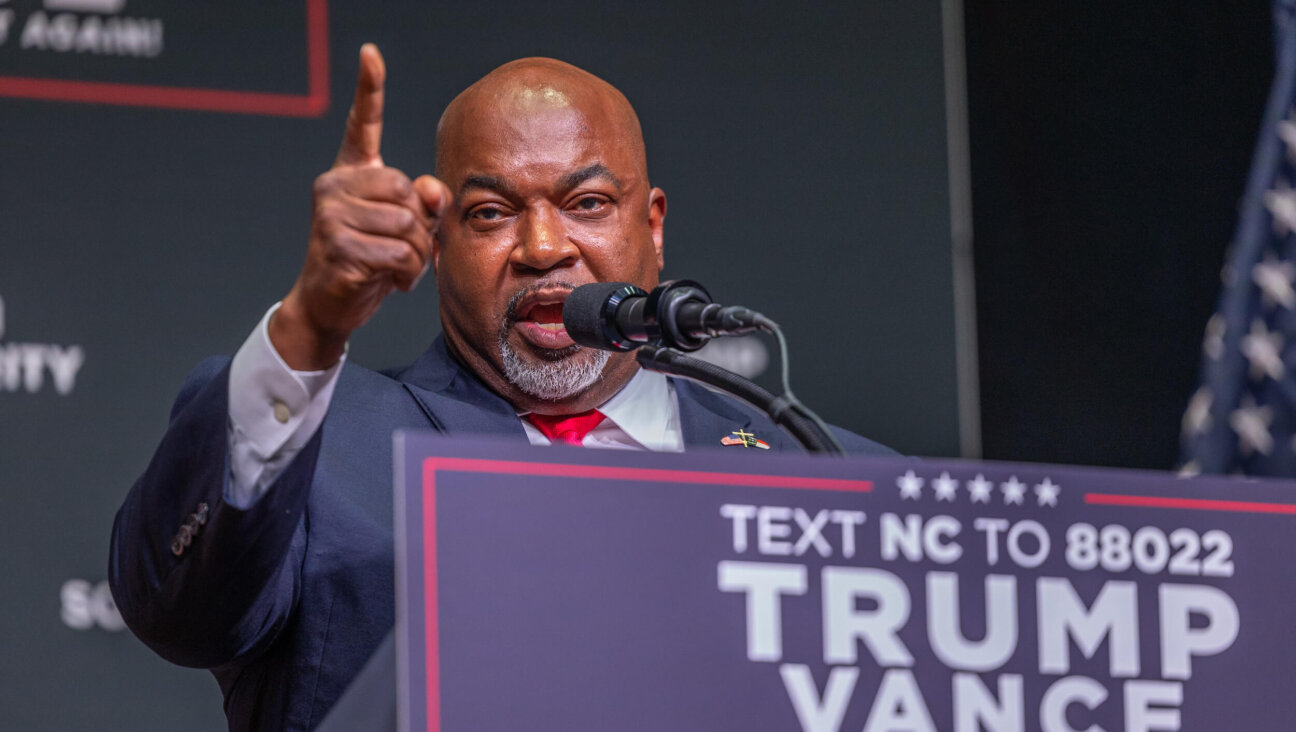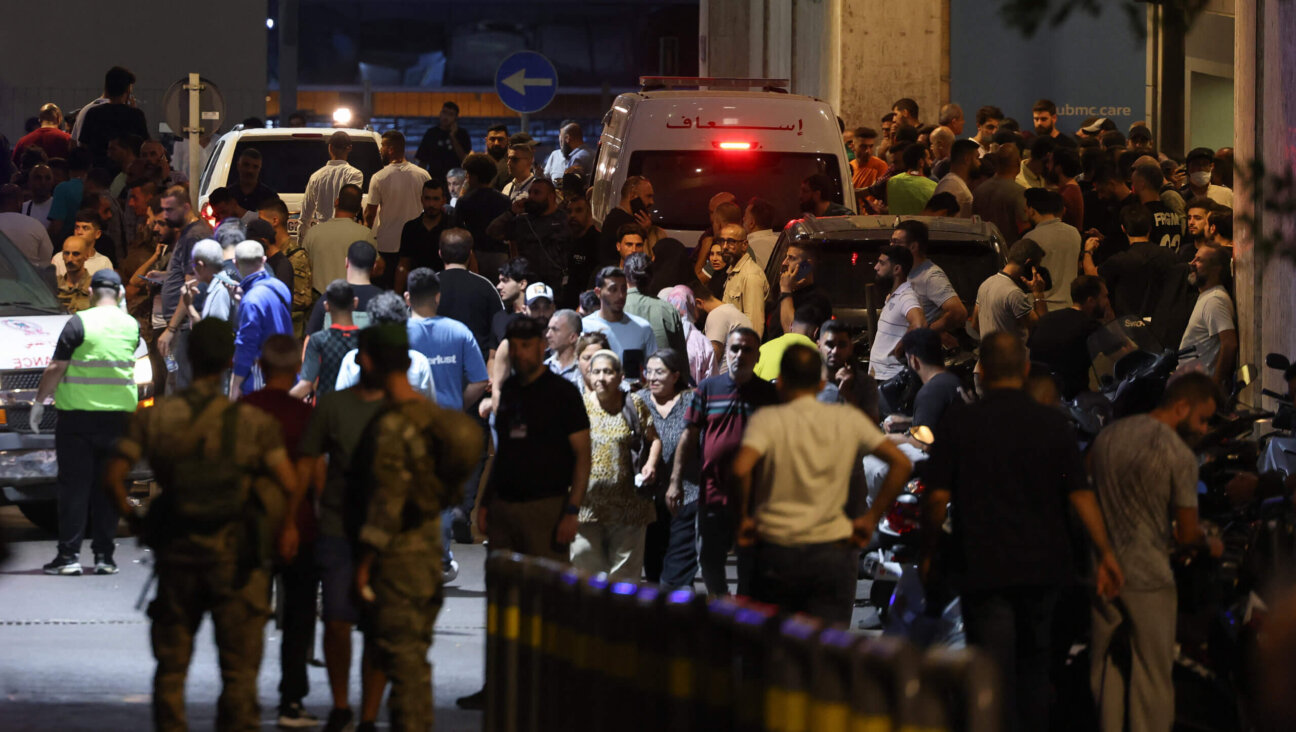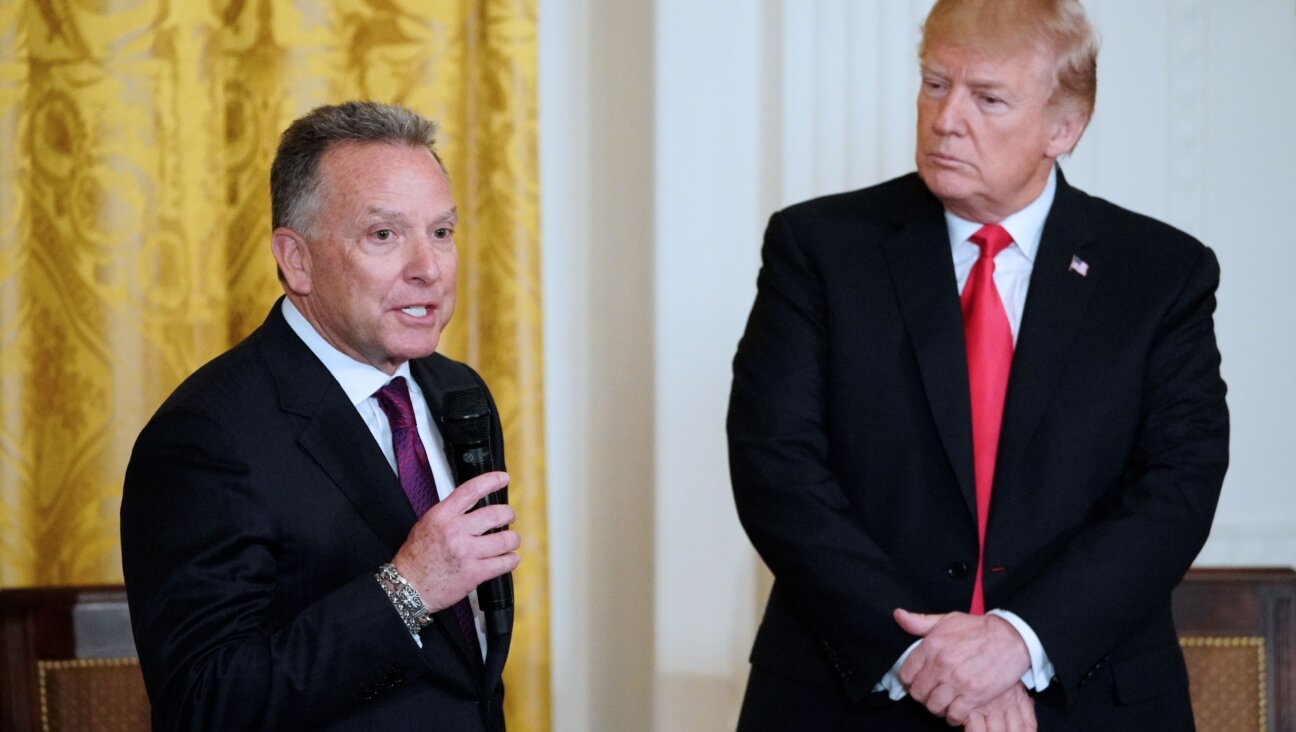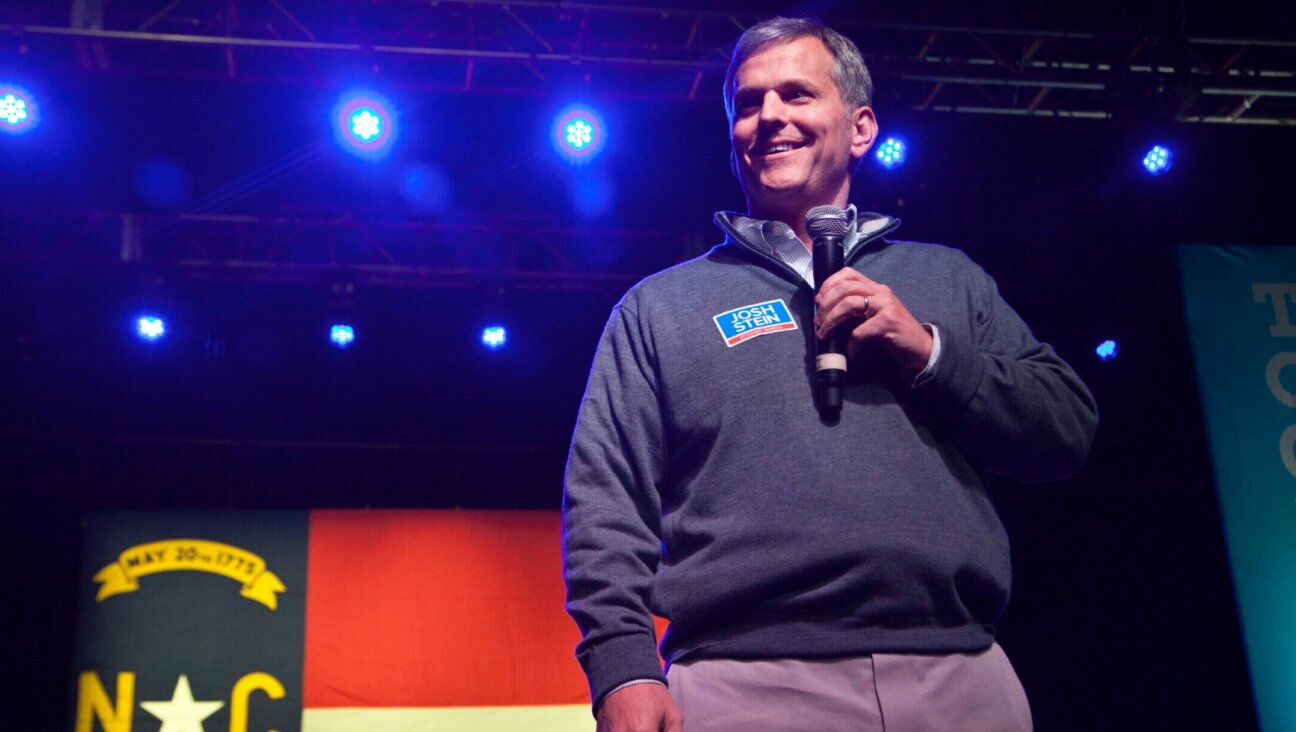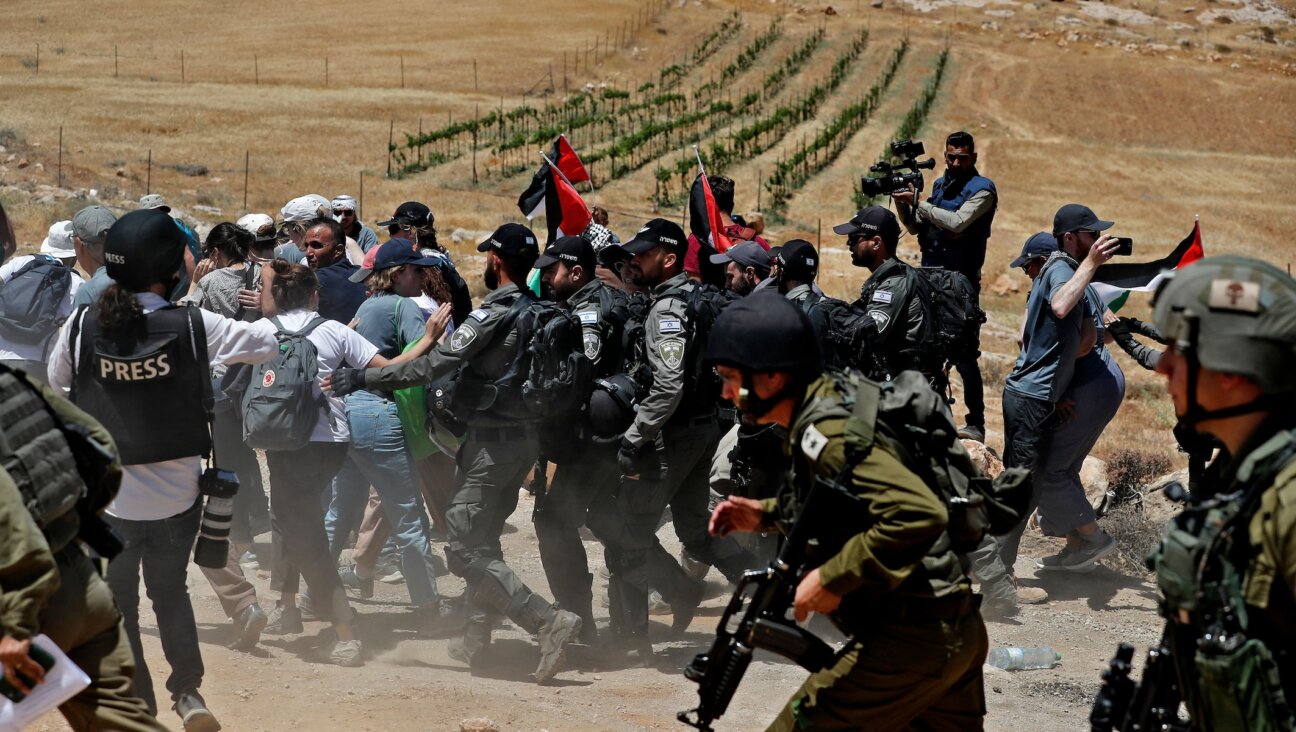Does Education Fuel Anti-Semitism?

Image by getty images

Strange Brew: Holocaust education in Germany can have unintended effects. Some students react negatively to the portrayal of Jews as victims, which may reinforce their beliefs that Jews hold power in the world. Image by getty images
A new study on anti-Semitism, commissioned by the German Parliament, came to the distressing, widely publicized conclusion that 20% of Germans are “latent” anti-Semites. But buried deep in the report is an assertion that might be even more troubling: Holocaust education is inadvertently fueling German anti-Semitism, making it worse.
The study concluded that “anti-Semitic stereotypes might be conveyed by the one-sided presentations of Jews as victims in [curriculum] plans and… books.’’ It noted that education about the Nazis often imposes “exaggerated moral expectations” on students, who respond with an anti-Semitism that is typified by “guilt denial.” In other words, explained Wolfgang Battermann, an educator from the town of Petershagen, “they feel accused of acts they had nothing to do with. Some hate the Jews for putting them in this situation.” And accounts of Nazi propaganda, if not presented carefully, can end up perpetuating vile stereotypes, especially in an era where half-truths and lies about Jews are readily available online.
Those trying to educate Germans about the Nazis must also contend with the well-documented and long- standing problem of “Holocaust fatigue”: Sixty-seven percent of Germans surveyed by researchers from Bielefeld University in 2008 found it “annoying that Germans are still held responsible for crimes against the Jews.”
No people has done more than the Germans to squelch far-right extremism and battle racism. Their government deserves praise for studying and publicly acknowledging a problem that is hardly limited to Germany. But surely Germans have a special obligation to teach their children about the Nazis and learn lessons from the Shoah without creating more hatred of Jews. Spend time with German educators dealing with the Holocaust, as I have, and you’ll realize how fiendishly complex this challenge is.
Focusing on the Nazi era in Germany can make different ingredients in a pre-existing stew of anti-Semitism even more toxic. Exaggerated notions of Jewish power can prompt Germans to blame Jews for unwelcome messages about the Shoah. So says Anetta Kahane, founder of the Amadeu Antonio Foundation, which funds and operates programs against neo-Nazism and anti-Semitism. “Some teachers think if they just describe the Holocaust it will help change the minds of students who have neo-Nazi and racist feelings. The opposite can happen. Students will say the Jews are preventing them from questioning the Holocaust in class; Jews who control the world media are not letting them talk about it.” What’s more, Kahane told me, “some teachers hold the same views. Teachers are ordinary Germans.”
One key problem is that too often in German schools and media, Jews become stick figures, caricatures of either passive victims or — because of absurdly one-sided depictions of the Israeli-Palestinian conflict — vicious victimizers. As Deidre Berger, director of the American Jewish Committee’s Berlin office, puts it, “Most young Germans are able to understand what the Holocaust was, but not who it happened to.” In most German schools, “there is very little talk about Judaism, Jewish culture and history. Jews only appear in textbooks dealing with the Crusades and with the Holocaust.”
Battermann provides one solution to this problem. He led efforts to restore the deserted, damaged local synagogue and Jewish school and transform them into an “Information and Documentation Center” on the town’s vanished Jewish community. Battermann works to ensure that the Jews are given back their rightful place in local history.
“Of course they need to know about Dachau and the Kristallnacht,” Battermann said. The problem is that, especially for “young people, teenagers, the atrocities are hard to imagine, they seem unreal. But they can easily learn about those who lived down the street, around the corner.” Once they do, he said, they understand that losing those people hurt their towns and hurt Germany.
Along the same lines, the AJC created a high school curriculum that teaches Jewish culture and rituals and also deals with the Nazis’ crimes. Even the thorny problem of anti-Semitism in Germany’s mostly Muslim immigrant communities can be reduced at least a bit with this approach, according to Aycan Demiral, a Turkish-born educator who directs Berlin’s Kreutzberg Initiative Against Anti-Semitism. One component brings students from the diverse Kreutzberg neighborhood, many from Turkish or Arab families, to a photo exhibit on former Jewish residents that, he says, “shows them Jews are human.”
It actually doesn’t seem very complicated. While there has been a resurgence of Jewish communities in some German cities, the Jews are still alien beings to most Germans. Help people feel the presence of those who once lived among them, reduce the “Otherness” of the Jews — as well as Roma, gay men and lesbians, and other Nazi victims — and the systematic machinery of extermination becomes an affront to everyone.
In January, Battermann received one of five Obermayer German Jewish History Awards given annually to non-Jewish Germans who work to restore and commemorate local Jewish history and culture. The awardees are just the most prominent exemplars of a widespread phenomenon: In towns and cities throughout Germany, non-Jewish Germans are retrieving Jewish history from dusty archives, restoring Jewish cemeteries, leading tours of local Jewish sites and insisting that Hitler not succeed in wiping out the Jewish past.
Sadly, such efforts probably can make only a dent in German anti-Semitism and its close cousin, Holocaust fatigue. And there are more important and more daunting obstacles to grappling with the Nazis’ legacy in Germany. For one thing, Kahane said: “It is still not over here. Grandparents and great-grandparents were part of the Nazi system. Students don’t want to deal with this, with their own families’ participation. Many teachers don’t want to, either.”
But I take at least some comfort in the likes of Battermann and Demiral. They are the kinds of Righteous Gentiles about whom we don’t hear much. They deserve thanks, support and heartfelt prayers from abroad, because the entire world has an interest in helping Germans win their difficult wrestling match with memory.
Dan Fleshler is a strategic communications and public affairs consultant based in New York City who has represented clients dealing with Holocaust education and remembrance.
A message from our CEO & publisher Rachel Fishman Feddersen

I hope you appreciated this article. Before you move on, I wanted to ask you to support the Forward’s award-winning journalism during our High Holiday Monthly Donor Drive.
If you’ve turned to the Forward in the past 12 months to better understand the world around you, we hope you will support us with a gift now. Your support has a direct impact, giving us the resources we need to report from Israel and around the U.S., across college campuses, and wherever there is news of importance to American Jews.
Make a monthly or one-time gift and support Jewish journalism throughout 5785. The first six months of your monthly gift will be matched for twice the investment in independent Jewish journalism.
— Rachel Fishman Feddersen, Publisher and CEO







